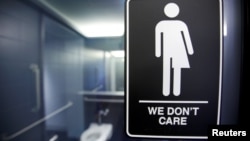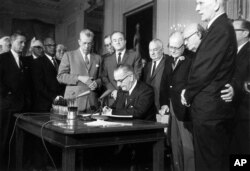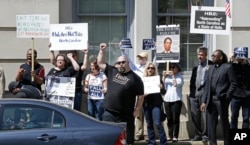North Carolina’s Public Facilities Privacy and Security Act
The Law:
Passed on March 23, the law, commonly referred to as HB2, bans individuals from using public bathrooms that do not correspond with their biological sex, as dictated by their birth certificates. It also bars cities from passing anti-discrimination ordinances to protect gay and transgender people (per Charlotte's act to protect the rights of the LGBT community).
Supporters:
Citing the right to privacy, North Carolina Gov. Pat McCrory is staunchly defending the controversial law, which largely impacts transgender people.
Last week, the Justice Department’s top civil rights official said the bill violated Title VII, which prohibits sex discrimination. The governor was given until Monday to scrap the statute, But the governor responded to the deadline by filing a lawsuit against the Justice Department:
In return, the Department of Justice announced a countersuit against North Carolina during a news conference just a few hours later.
The Feds:
The Justice Department flatly rejects the law, arguing it violates The Civil Rights Act of 1964.
Is the state at risk of losing federal funds?
Yes. The Obama administration is considering withholding billions of dollars, mostly relating to education funding.
According to Human Right Watch, "North Carolina has already lost more than a half billion dollars in economic activity just from companies canceling or reconsidering plans to come to the state...."
Does the law also allow other discriminatory practices, as media outlets have reported?
Yes. HB2 leaves in place language that strips North Carolina workers of the ability to sue under a state anti-discrimination law, a right that has been upheld in court since 1985.
"If you were fired because of your race, fired because of your gender, fired because of your religion, you no longer have a basic remedy,” said Allan Freyer, head of the Workers’ Rights Project at the North Carolina Justice Center, who was quoted in an article published in MotherJones.







